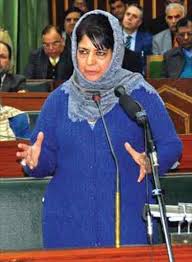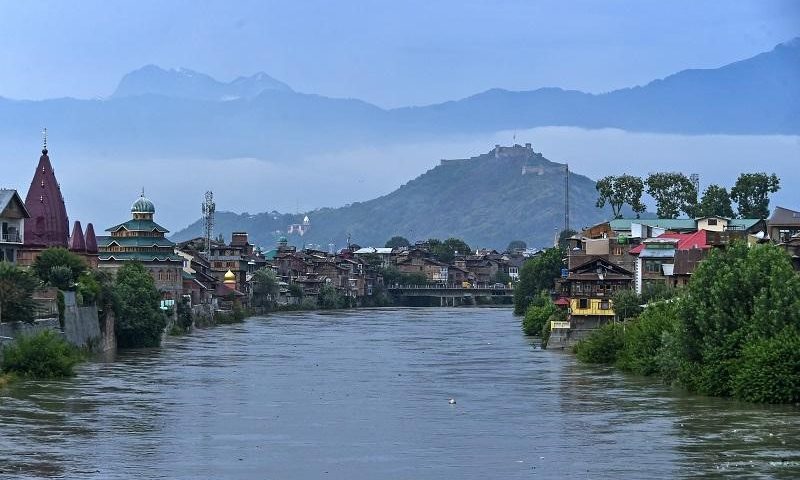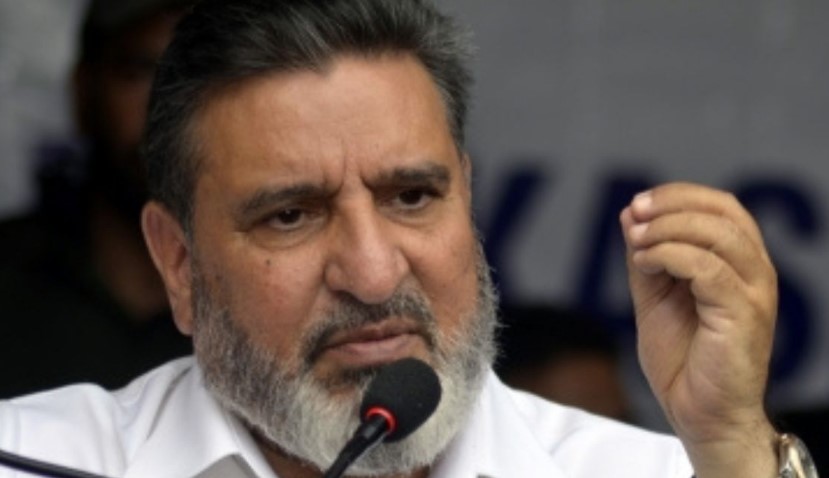- Mehbooba regrets killings, says people didn’t expect this of her
- Chief Minister turns down opposition’s demand of judicial probe
- ‘Govt committed to give a job to one person of the victim family on compassionate basis’
Chief Minister Mehbooba Mufti Monday said 2016 Kashmir uprising was preplanned and expressed regret saying people did not expect this to happen in her government.
Winding up the discussion on the adjournment motion in the Legislative Assembly on civilian killings in Kashmir during 2016, Mehbooba said her government was first accused of setting up satellite townships for Kashmiri Pandits, which had already been established in Kashmir.
“We only added 500 more accommodations to these townships,” she said.
The chief minister said then her government was accused of setting up Sainik Colonies for which the process had been started by the previous government way back in 2010.
She said the killing of Hizbul-Mujahideen commander Burhan Wani had served as a trigger to arouse passions for something that had been preplanned.
“In the evening, I got a call that three militants had been killed and one of them was Burhan Wani,” Mehbooba said brushing aside suggestions that she was in knowhow of Burhan’s presence at the encounter site beforehand.
“Gunfights do not happen the way someone is sent to the gallows about which you already have information,” she said referring to the hanging of Mohammad Afzal Guru and its handling by the previous government led by Omar Abdullah.
The CM said she instructed the security agencies to maintain maximum restraint to avoid any casualties and directed them to impose curfew.
However, she said paramilitary forces were busy overseeing the conduct of Amarnath yatra both from the Pahalgam-Chandanwari and Baltal-Sonamarg tracks.
Mehbooba said her government was surprised with the way people had come out in large numbers.
“Mostly on the first three to four days, some elements among these people damaged 50 police stations and security camps and in retaliation the security forces fired pellets at them and when pellets are fired from up close, it causes maximum damage, more damage than even lethal weapons,” she said.
The chief minister said this led to a cycle of violence.
“When we told security forces to exhibit restraint, people came to attack with petrol bombs and axes,” she said. “Next day all Masjids were abuzz with Taranas making me wonder, how come there was so much preparedness.”
Mehbooba said this was followed by hartal and chalo calls given by the Hurriyat Conference.
“The organisers of these protests and programme would keep children at the forefront, provoke them and runaway from the spot, leaving these children to face the music of gunfire,” she said. “Suddenly, shopkeepers opening shops became something illegal, government employees visiting offices became an offense.”
The CM said a shopkeeper was fired at when he opened his shop, a female school principal had come out to participate in protests to save her son and daughter-in-law from the protestors, people blocked roads, banks were looted, schools set ablaze, and no one feared Police and CRPF but feared people who would stop pregnant women from visiting a doctor and elderly persons from visiting a hospital from undergoing paralysis.
“I don’t know who wanted what out of this very difficult situation,” she said.
Mehbooba said everyone felt bad about the civilian killings.
Referring to the statement of opposition National Conference legislators that what had happened to the Peoples Democratic Party President Mehbooba Mufti who used to visit the residences of the militants killed, she said, “Yes, people did not expect this of me and everyone felt bad about the killings and I also regret it and the highest casualties are in south Kashmir (wherefrom PDP has the highest seats) and those too occurred during the first few days of the unrest.”
The chief minister said thousands of civilians had been injured, over 100 injured in the eyes, 20 of them grievously injured in both eyes and with six becoming completely blind.
She said Tral, the hometown of Burhan Wani, had remained peaceful as no one in the area had attacked police stations or Army camps.
Terming the Akhnoor killing as unfortunate, the chief minister said such killings had also occurred during the times of the previous governments.
“In our government encounters are avoided wherever Army knows there will be collateral damage and security agencies are involving families of militants to woo them back in six recent gunfights, six youth who had joined militancy returned when their parents were sent to ask them to return,” she said. “We are providing opportunity to them to return.”
Meanwhile, The government Monday ordered a Special Investigation Team (SIT) to inquire the killings of an ATM guard and a lecturer while asking district-level investigation teams to probe other civilian killings.
A 21-year-old ATM guard Riyaz Ahmad Shah of Chattabal area of Srinagar and a 30-year-old lecturer from Khrew area of Pampore, Shabir Ahmad Mangoo were among 92 civilians killed at the hands of Army, Police and paramilitary forces during the 2016 summer uprising in Kashmir.
Winding up the adjournment motion on the killings of Kashmiri civilians in 2016, Chief Minister Mehbooba Mufti turned down opposition’s demand of ordering a judicial probe into all the civilian killings saying the future course of action would be decided only if the district-level investigation teams that would probe these killings feel the need for it.
The CM did not budge to the opposition’s demand saying the report of the Justice (Retd) M L Koul Commission appointed by the then State government led by Omar Abdullah to probe the killings of 128 civilians in Kashmir at the hands of government forces in 2010 had submitted its report to her only a few days back.
For the past 27 years, the State has been ordering three types of probes into human rights violations committed by the armed forces – magisterial inquiries led by Deputy Commissioners or some senior bureaucrats, judicial inquiries and statutory inquiries under the Commission of Inquiry (CoI) Act of 1962.
Usually, the State governments would order one of the three types of these inquiries into the killings of civilians although most often these inquiries would never conclude.
Rehabilitation of affected Families
Mehbooba said a compensation of Rs 5 lakh would be provided to every family that had lost its dear one during the 2016 uprising while the government was also committed to give a job to one person of the family on compassionate basis.
She said those youth who had been blinded would be provided free education in top schools like DOON International while for those injured having permanent disability, the government was thinking of increasing the compensation of Rs 75,000 normally provided in these cases and also increasing the compensation of Rs 25,000 normally provided to the injured having partial disability.
Earlier, the opposition created pandemonium in the Legislative Assembly and objected to the Speaker Kavinder Gupta’s suggestion of holding Question Hour before the Chief Minister’s reply to the House on the adjournment motion on civilian killings of 2016 in Kashmir.





